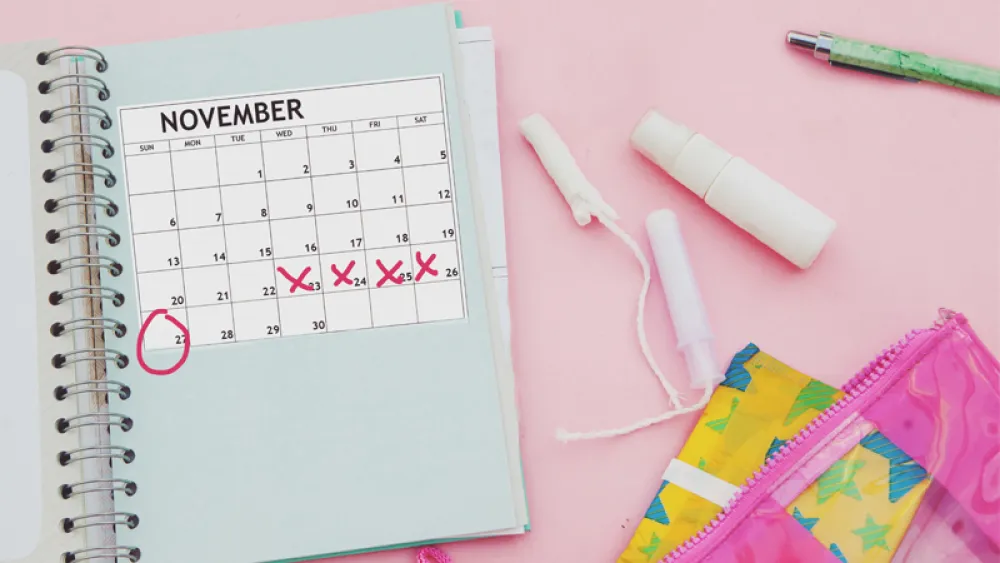Women's Health
What's a 'Normal' Period?


“Aunt Flo.” “That Time of the Month.” “Code Red.” “The Curse.” “Leak Week.”
A woman’s period can be as different as the more than 5,000 ways to describe it. And since every woman’s body is different, what should you really expect when it comes to your monthly visitor? What is a “normal” period, anyway?
How long periods last
Depending on your age and how far away a woman is from puberty, a normal cycle is 25 to 35 days. From there, it kind of depends on every person how long their menses are and potentially how much discomfort they may or may not have.
In general, periods last five to seven days. The first couple of days may be a little bit heavier before they lighten up again. Many times, the bleeding will be accompanied by abdominal cramping, caused by uterine contractions.
Period pain
You may have some mild cramping. Taking something like ibuprofen or Advil can help. Starting that medication about a day or two before the discomfort starts can be very beneficial. However, if you have significant pain or you're having to take those pills for more than just a couple of days, that's something you need to talk to your provider about.
Blood loss with periods
As far as blood loss, it can be a matter of perception. It can be hard to know whether yours falls within what’s considered a normal amount or if the bleeding is too heavy.
You may think you have more or less depending on what your perception is, but as long as you're not feeling symptomatic, then you may have a little bit more blood loss. Normal isn't just one type of pattern, and your normal period can be very different from the next woman’s.
Signs something’s wrong with your period
But how do you know your ‘normal’ is ‘abnormal?’ Signs to watch for include:
- A period that lasts more than seven days.
- You go through more than six or seven tampons or pads a day.
- You lose so much blood you become anemic. (Anemia is a condition that occurs when your blood does not have enough iron, making you tired.)
- Your menstrual cramps become unbearable.
- You have large menstrual blood clots. Clots smaller than the size of a quarter are normal.
What’s most important is to know what’s right for your body, and to make sure your period does not interfere with daily life. Understanding your cycle and just knowing what your periods are generally like is a great place to start.
If you need help, there are lots of good apps that can help you track your period. If you have a month that’s maybe a little off, that’s probably okay. Things change like stress and medications can be taken into consideration. If things are off for six months, we really want to be involved and do an evaluation.
Regardless of the pattern of your period, it's important to visit your OB/GYN each year for regular check-ups. If you have questions about your period and if what’s happening when your “Aunt Flo” visits, talk with your Methodist Physicians Clinic OB/GYN.

